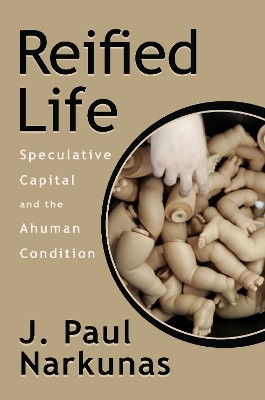Reified Life(English, Electronic book text, Narkunas J. Paul)
Quick Overview
Product Price Comparison
Reified Life addresses the most pressing political question of the 21st century: what forms of life are free and what forms are perceived legally and economically as surplus or expendable, human and otherwise. The 2008 economic crisis solidified the dominion of neoliberal and financial capital to organize human societies much to the detriment of the world's populations. Reified Life theorizes the dangerous social implications of a posthuman future, whereby human agency is secondary to algorithmic processes, digital protocols, speculative financial instruments, and nonhuman market and technological forces. Employing new readings of Deleuze, Guattari, Foucault, Marx, Vico, Gramsci, Berardi, and Gilbert Simondon, Narkunas contends that it is premature to speak of a posthuman or inhuman future, or employ an 'ism, given how dynamic and contingent human practices and their material figurations can be. Over several chapters he diagnoses the rise of "market humans," the instrumentalization of culture to decide the life worth living along utilitarian categories, and the varied ways human rights and humanitarianism actually throw members of the species like refugees outside the human order. To combat this, Reified Life argues against Reified Life calls to abandon the human and humanism, and instead proposes the ahuman to think alongside the human, what philosopher Gilbert Simondon calls the transindividuation of ontogentic processes rather than subjectivity. To aid the "figurating animal," Reified Life elaborates speculative fictions as critical mechanisms for envisioning alternative futures and freedoms from the domineering forces of speculative capital, whose fictions have become our realities. Narkunas offers, to that end, a novel interpretation of the post-anthropocentric turn in the humanities by linking the diminished centrality of humanism to the waning dominion of nation-states over their populations and the intensification of financial capitalism, which reconfigures politics along economic categories of risk management.


